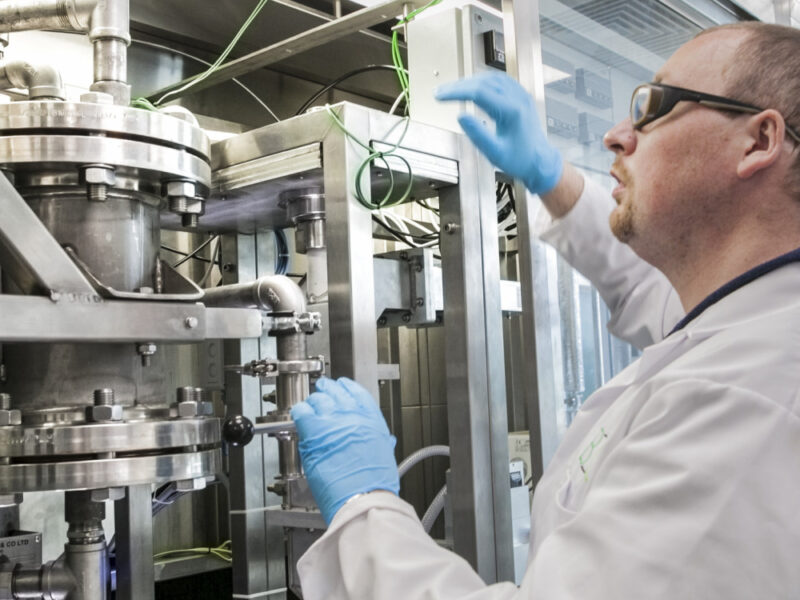
Dr. Yongqiang Liu – University of Southampton
I believe that the untapped potential in engineering biomass and waste streams for practical applications could support the transition toward a low-carbon circular economy, where environmental challenges become opportunities for value creation.
An introduction to BBNet member – Yongqiang Liu
Hi I’m Yongqiang Liu, Associate Professor at the University of Southampton. My work focuses on the sustainable valorisation of organic wastes, lignocellulosic biomass, and wastewater through integrated bioprocesses to produce value-added chemicals and materials such as succinic acid, polyhydroxyalkanoates (PHA), and volatile fatty acids (VFA). By developing efficient microbial and process engineering strategies, this research supports the transition towards a circular bioeconomy, aiming to reduce environmental impact while recovering valuable resources from waste streams.
What are you most excited about right now in your work?
I’m most excited about applying biofilm engineering principles to industrial fermentation by developing biofilm-based fermentation systems. This approach offers a promising strategy to achieve continuous fermentation, overcome hydrolysate inhibition, streamline operations, and enhance overall productivity.
What do you see as the long-term potential and impact of your research or technology?
In the long term, I see my research enabling resilient and resource-efficient biotechnologies that address both pollution control and green chemical production. By leveraging waste biomass and wastewater as feedstocks, this work supports the transition toward a low-carbon circular economy, where environmental challenges become opportunities for value creation.
What got you interested in this area of research?
I was drawn to this field early on by the idea that waste is simply a misplaced resource, and by the opportunity to produce chemicals from renewable biomass without competing with food sources. Recognising the untapped potential in biomass and waste streams inspired me to explore how they can be engineered for practical applications, from pollution control to bioproduction, merging scientific curiosity with real-world impact.
What challenges are you currently facing?
The fermentation industry is generally reluctant to use waste-based feedstocks, largely due to concerns over their variability, complex composition, regulatory hurdles, and the logistical difficulties of sourcing and handling such materials reliably.
What concerns do you have about current UK policy?
While the UK’s Biomass Strategy 2023 acknowledges the importance of chemicals and materials alongside energy and fuels, current policies and incentives still heavily favour bioenergy applications like biomethane production. This imbalance limits the development of higher-value biomanufacturing routes from biomass. Stronger, more targeted support is needed to enable sustainable chemical and material production from biomass.
What has been your favourite collaboration so far?
One of my favourite collaborations has been with industrial partners to apply lab research to real-world complex feedstocks and gain insight into practical constraints. Their input has made our work more relevant and impactful for real-world applications.
What do you see as the most promising technology for the future of biomass/biorefining?
Technologies that minimise biomass pretreatment, enable continuous fermentation, and simultaneously improve microbial tolerance to inhibitory compounds such as biofilm-based fermentation can significantly enhance the efficiency and sustainability of converting complex biomass into valuable chemicals and materials.
What is your favourite thing about BBNet events?
The chance to connect with diverse experts across academia and industry, fostering meaningful discussions that inspire new perspectives and innovative approaches to biomass challenges.
What are you looking for from other network members?
I’m looking to connect with industrial partners and academic collaborators who specialise in sustainable biomass valorisation and bio-based fermentation technologies, particularly in biomass pretreatment, synthetic biology, and modelling and simulation. Find out more and contact Yongqiang here.




